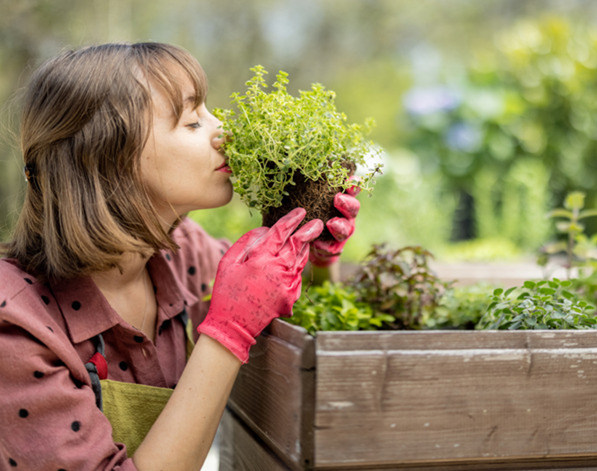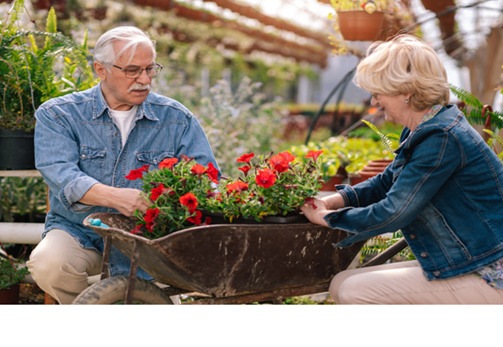
A garden can be a great source of physical activity and mental stimulation. Still, if you have health issues or disabilities, you may need to adjust your garden before digging in the dirt. Read on to learn how to modify your garden, so it’s accessible and enjoyable.
Raised Beds
Raised beds are an excellent way to garden for people who have limited mobility or can’t bend over—these need to be at a comfortable height for seniors and disabled individuals.

Add potting benches to allow people sitting in wheelchairs to reach over the bed without having to climb onto it. The bed height should be 24 inches for someone seated in a wheelchair and 30 inches for someone who will stand while gardening but has difficulty bending and reaching.
Containers
Gardening in containers is adaptable to indoor and outdoor gardening. Containers can be placed on patios or porches or along walkways. You can also move them so they get enough sunlight.
Vertical Gardening
Climbing plants are fantastic in the garden and can add privacy or disguise a view. They can also provide visual interest year-round, depending on the selected plants. Make sure you are growing the right plants for the right height and can reach them at maturity. For example, consider growing up if you cannot bend down to harvest cucumbers.
A trellis can be placed in a raised bed, container, or the ground. Make sure plant stakes are not sharp and not a tripping hazard.
Some Plants suitable for vertical gardening are:
- Cucumbers
- Tomatoes
- Peas
- Beans
- Squash
- Clematis
- Jasmine
- Rose
Clear and Even Paths
Ensure all paths and walkways are wide enough for someone in a wheelchair. Avoid any slopes or edges that may cause someone to slip or fall. Use a rake to level the soil, especially near the seating area. Be sure that paths have a slight slope so water can run off and prevent slipperiness. Brush hard surfaces with a stiff broom to remove moss.
Adaptive Gardening Tools
Gardening tools come in a variety of sizes for a variety of abilities and situations. If you have difficulty gripping tools, look for larger handled tools or consider adding or modifying existing tools.
These are some of the adaptive gardening tools you might find helpful:
- Kneeling benches or garden scooters can reach plants lower to the ground.
- Arm cuffs go around your forearm and attach to various tools to help extend reach and increase leverage and grip. The tools available for attachment are trowels, forks, and cultivators.
- Telescopic garden tools have an extendable reach, so you can rake or prune by lengthening the handles, even if you are in a wheelchair.
- Grabbers to pick up debris like a giant pair of tongs.
- Hand seed dispensers are simple and plastic for those who have difficulty gripping small objects.
Let us know how we can help make gardening more accessible for you. We create raised beds, seating areas, pathways, and patios depending on your unique needs. Contact us today!

